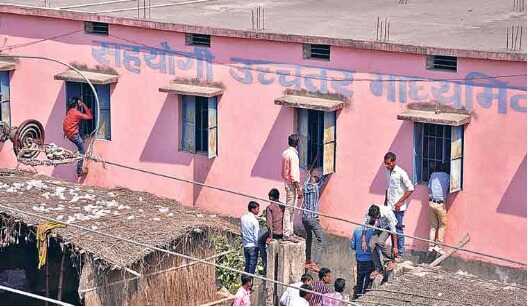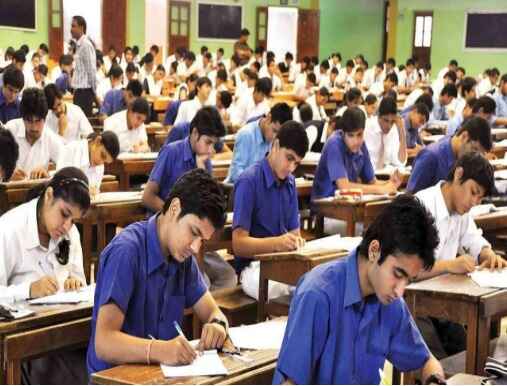With the approach of the examination season, discussions of India’s examination system gain momentum, shedding light on its deficiencies and suggesting avenues for improvement. The Public Examinations (Prevention of Unfair Means ) Bill, 2024, has been proposed in Lok Sabha.
The objective is to curb unfair practices, thereby enhancing transparency, fairness, and trustworthiness in the public examination system. Additionally, once enacted, the bill will serve as a blueprint for states to consider implementing their discretion.
Need of the bill
The necessity for such a bill arises from numerous instances of question paper leaks in recruitment exams nationwide in recent years, totalling at least 48 cases in 16 states over the past five years, affecting the hiring process for government jobs, and impacting over 1.51 crore applicants for approximately 1.2 lakh posts.
Malpractices disrupt examinations, leading to delays and cancellations, negatively affecting millions of youth Currently, there is no specific legislation to address such unfair practices effectively. It is essential to enact comprehensive central legislation to identify and address vulnerabilities within the examination system.
The bill aims to enhance transparency, fairness, and credibility in public examinations, ensuring that the sincere efforts of the youth are duly recognized and their future secured. It seeks to deter individuals, groups, or institutions from engaging in unfair means for personal gain or wrongful purposes.
Key provisions
Section 2(k) of the Bill defines a Public Examination as any examination administered by a “public examination authority” as outlined in the Bill’s Schedule or any other authority notified by the Central Government. The schedule includes five public examination authorities: Union Public Service Commission (UPSC), Staff Selection Commission (SSC), Railway Recruitment Boards(RRBs), Institute of Banking Personnel Selection (IBPS), and National Testing Agency(NTA).
NTA conducts exams such as JEE(Main), NEET-UG, UGC-NET, and Common University Entrance Test(CUET). Additionally, all Ministries of the Department of the Central Government and their attached and subordinate offices for staff recruitment fall under the new law. The Central Government reserves the right to add new authorities to the schedule through notification as necessary.
The definition of Unfair means
Section 3 of the bill outlines 15 actions considered unfair means in public examinations for monetary or wrongful gain. These actions include leaking question papers or answer keys, unauthorized possession of question papers or Optical Mark recognition (OMR) sheets, and providing solutions by unauthorized persons.
It further includes tampering with documents for candidate shortlisting or merit determination, tampering with computer systems or networks, and creating or issuing fake admit cards or offer letters for cheating or monetary gain. Offences under the proposed law will be investigated by officers, not below the rank of Deputy Superintendent of Police or Assistant Commissioner of Police.

Punishment under the Bill
Under Section 9 of the Bill, all offences are deemed cognizable, non-balliable, and non-compoundable. In cognisable offences, the police are obligated to investigate without seeking permission from the Magistrate. Non-compoundable offences can not be withdrawn by the complaint, even in cases of compromise, and must proceed to trials. This implies that arrests can be made without warrants, and bail is subject to the discretion of the magistrate.
Punishment for individuals engaging in unfair practices or offences can range from three to five years of imprisonment and a fine of up to Rs 10 lakh. Failure to pay the fine may result in additional imprisonment as per the provisions of the Bhartiya Nyay Sanhita, 2023. Service providers contracted by public examination authorities for conducting examinations may face penalties of up to Rs 1 crore in fines.
Concerns related
While intended as a model for states, granting discretion to state governments may result in inconsistent implementation, potentially weakening the law’s effectiveness in curbing unfair practices in public examinations. Provisions like punishment for offenders may harbour exploitable loopholes, such as fines that are not proportionate to financial gains from unfair means, diminishing deterrence.

The bill proposes a High-Level National Technical Committee on Public Examinations but lacks clarity on compositions, qualifications, and mandate, raising questions about expertise and impartially in formulating IT security systems and exam standards.
The issue with the examination system in India
Issues about the Indian examination system stem from its historical roots as a tool for elimination rather than educational advancement, particularly evident in the Grade 10 exam’s failure rate and limited opportunities for secondary and higher education. Despite the perceived equality in testing conditions, the system fosters competition over comprehension, encouraging rote memorization instead of genuine understanding.
This competitive environment induces significant stress among students and lacks the holistic learning approach seen in other societies. Furthermore, inadequate academic infrastructure and bureaucratic processes further compromise the quality of examination procedures across various boards. All this can lead some students to resort to unethical or bad behaviours to achieve high marks or secure opportunities for further education or employment.
Reforms needed
To reform the Indian examination system, addressing institutional dysfunction is crucial. This involves rectifying staffing shortages and infrastructure deficiencies within examination norms while prioritising transparency and accountability to maintain integrity and fairness. Additionally, a comprehensive curriculum is needed to streamline content, emphasise critical thinking skills over to rote memorization and integrate interdisciplinary approaches to learning.
Flexible assessment methods, including modular formats and continuous feedback, can better accommodate diverse learning needs and promote continuous growth and learning. Investing in educator training is also required. This includes comprehensive programs to deepen pedagogical understanding and promote collaboration among teachers.

Conclusion
The bill specifies investigation and enforcement by designated officers, but additional oversight mechanisms are necessary to ensure accountability and transparency in examinations—this enables monitoring exams, addressing complaints, and adulting procedures to prevent malpractice effectively.
Stakeholders must work together actively to implement impactful reforms that promise the holistic development and well-being of students, setting the stage for a brighter future for future generations.
-TANYA SHAH
MUST READ: MYSTERIOUS DATA: INDIAN STUDENTS DEATH IN THE UNITED STATES


